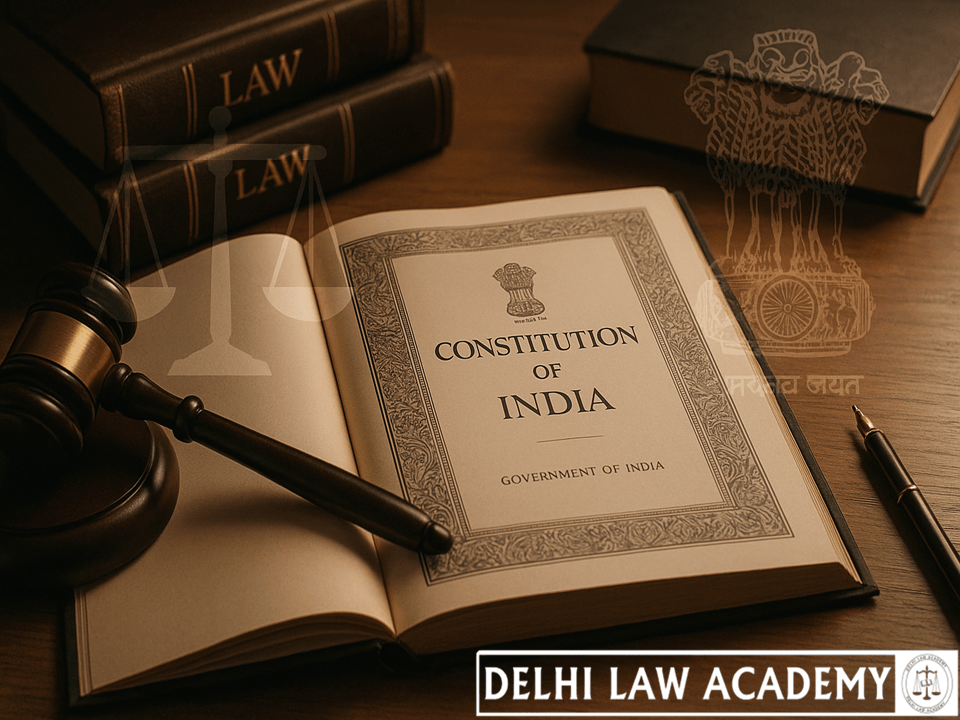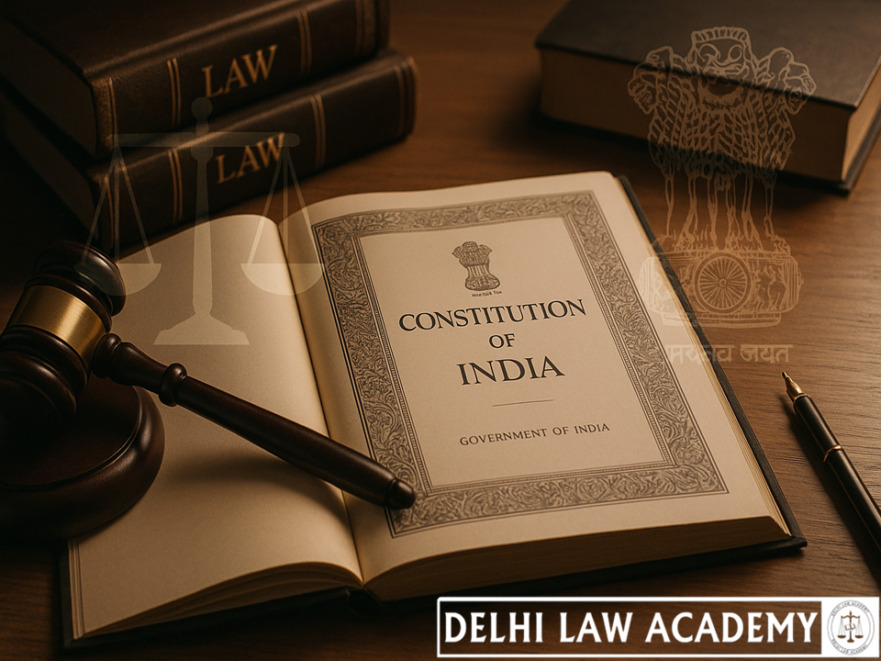
🌿 PANCHAYATI RAJ INSTITUTIONS — Articles 243E to 243K
Delhi Law Academy Jaipur presents below for aspirants of RJS, DJS, PCS(J) and other Judicial Services throughout India a simplified Note on the Constitutional provisions relating to the Panchayati Raj Institutions.
📘 Constitutional Provisions
📌 Article 243E (1) – Duration of Panchayats
• Every Panchayat unless sooner dissolved under any law for the time being in force,
• shall continue for five years from the date appointed for its first meeting and no longer.
Article 243E (3)
• An election to constitute a Panchayat shall be completed before expiry of its duration specified in Clause (1)
• and before expiration of six months from the date of its dissolution.
📌 Article 243F (1) – Disqualifications for membership
• A person shall be disqualified for being chosen as a member of a Panchayat and for being a member of a Panchayat:
(a) If he is so disqualified by any law for elections to Legislature of the State concerned.
• Provided that no person shall be disqualified on the ground that he is less than twenty-five years of age if he has attained the age of twenty-one years.
(b) If he is so disqualified by any law made by Legislature of the State.
Article 243F (2)
• If any question arises as to whether member of a Panchayat has become disqualified under Clause (1),
• the question shall be referred for decision of such authority as Legislature of a State may, by law, provide.
📌 Article 243G – Powers, Authority and Responsibilities of Panchayats
• Legislature of a State may by law endow the Panchayats with powers and authority necessary to enable them to function as institutions of self-government.
• Such law may contain provisions for devolution of powers and responsibilities upon Panchayats subject to specified conditions with respect to:
– preparation of plans for economic development and social justice;
– implementation of schemes for economic development and social justice, including those in relation to matters listed in Eleventh Schedule.
📌 Section 243H – Powers to impose taxes by Panchayats
• Legislature of a State may by law:
(a) Authorise a Panchayat to levy, collect and appropriate such taxes, duties, tolls and fees as may be specified.
(b) Assign to a Panchayat taxes, duties, tolls and fees levied and collected by State Government for such purposes as may be specified.
(c) Provide for making grants-in-aid to Panchayats from the Consolidated Fund of the State.
📌 Section 243I – Constitution of Finance Commission
• Governor shall, at the expiration of every fifth year, constitute a Finance Commission
to review financial position of Panchayats and make recommendations regarding:
– distribution of taxes between State and Panchayats,
– taxes assignable to Panchayats,
– grants-in-aid,
– measures to improve finances,
– any other matter relating to sound finance.
Section 243I (2) – Legislature may provide composition, qualifications and mode of selection.
Section 243I (4) – Governor shall lay recommendations with explanatory memorandum before Legislature.
📌 Section 243J – Audit of Accounts
• Legislature may provide for maintenance and audit of Panchayat accounts.
📌 Section 243K – Elections to Panchayats
• Superintendence, direction and control of Panchayat elections shall vest in State Election Commission
headed by State Election Commissioner appointed by the Governor.
• Conditions of service and tenure not to be varied to his disadvantage.
• He cannot be removed except like a High Court Judge.
• Legislature may make laws regarding all matters of elections.
✅ Note: Part IX was inserted by the 73rd Constitutional Amendment Act, 1992.
📘 Stay Ahead with Delhi Law Academy!
Get access to free monthly current affairs, read our insightful blogs,
and explore free study resources prepared by experts at DLA Jaipur. 🚀
Frequently Asked Questions (FAQs)
• He is disqualified under any law relating to State Legislature elections.
• He is disqualified under any State-made law for Panchayats.
• However, a person aged 21 years cannot be disqualified merely for being under 25.
✅ Preparing plans for economic development
✅ Implementing schemes related to social justice
✅ Handling matters listed in the Eleventh Schedule (29 subjects).
• Levy, collect and appropriate taxes, duties, tolls and fees.
• Receive assigned taxes collected by the State.
• Get grants-in-aid from the Consolidated Fund of the State.
• Distribution of taxes between State & Panchayats
• Taxes that may be assigned to Panchayats
• Grants-in-aid
• Measures to strengthen Panchayat finances
• Electoral roll preparation
• Conduct of elections
• Scheduling & supervision of voting
The State Election Commissioner enjoys security of tenure similar to a High Court Judge.
Contact us
📍 Delhi Law Academy – Jaipur Branch
6C, Tower 2, Coaching Hub, Pratap Nagar, Jaipur – 302033
📞 Phone:
+91 9911916552
+91 8447285606
✉️ Email:
contactus@delhilawacademy.com

